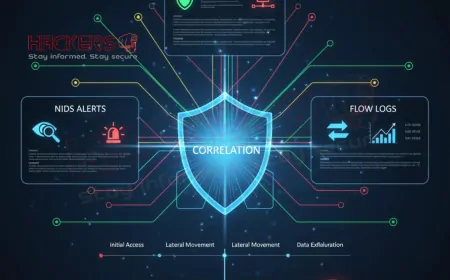How Does LPT Certification Prepare You for Real-World Red Team Operations?
In the high-stakes world of cybersecurity, red team operations are the ultimate test of an organization’s defenses. Red teaming involves simulating real-world cyberattacks to identify vulnerabilities before malicious hackers do. The Licensed Penetration Tester (LPT) Master certification, offered by EC-Council, is a prestigious credential designed to equip cybersecurity professionals with the skills needed to excel in these complex, real-world scenarios. But how exactly does the LPT certification prepare you for red team operations? This blog post dives into the practical, hands-on skills you’ll gain, the methodologies you’ll master, and why this certification is a game-changer for aspiring red teamers. Whether you’re new to cybersecurity or a seasoned professional, this guide will show you why the LPT is a must-have for tackling real-world challenges.

Table of Contents
- What Is the LPT Certification?
- Understanding Red Team Operations
- How LPT Prepares You for Red Teaming
- Key Skills Gained Through LPT
- Real-World Scenarios Covered in LPT
- Benefits of LPT for Red Team Careers
- How to Get Started with LPT
- Conclusion
- Frequently Asked Questions
What Is the LPT Certification?
The Licensed Penetration Tester (LPT) Master certification is the pinnacle of EC-Council’s penetration testing track. It’s designed for cybersecurity professionals who want to prove their expertise in conducting advanced penetration tests and simulating sophisticated cyberattacks. Unlike entry-level certifications, the LPT focuses on real-world scenarios, requiring candidates to demonstrate practical skills in a rigorous, hands-on exam environment.
The LPT builds on foundational certifications like the Certified Ethical Hacker (CEH) and EC-Council Certified Security Analyst (ECSA). It emphasizes advanced techniques, such as exploiting vulnerabilities, bypassing defenses, and documenting findings in a professional manner skills critical for red team operations.
Understanding Red Team Operations
Red team operations go beyond traditional penetration testing. While a pen test typically focuses on finding and exploiting vulnerabilities, red teaming simulates a full-scale cyberattack, mimicking the tactics, techniques, and procedures (TTPs) of real adversaries. Red teams aim to test an organization’s entire security posture, including people, processes, and technology.
Key aspects of red team operations include:
- Stealth: Operating undetected to simulate real attackers.
- Comprehensive Scope: Targeting networks, applications, physical security, and even employees through social engineering.
- Realistic Scenarios: Mimicking advanced persistent threats (APTs) and nation-state actors.
- Actionable Reporting: Providing detailed findings to help organizations improve their defenses.
The LPT certification aligns closely with these goals, preparing candidates to think and act like real-world attackers.
How LPT Prepares You for Red Teaming
The LPT certification is uniquely designed to bridge the gap between theoretical knowledge and real-world application. Here’s how it equips you for red team operations:
- Hands-On Experience: The LPT exam requires candidates to perform complex penetration tests in a simulated environment, mimicking real-world networks and systems.
- Advanced Methodologies: You’ll learn structured approaches like the Cyber Kill Chain and MITRE ATT&CK framework, which guide red teamers in planning and executing attacks.
- Realistic Challenges: The exam tests your ability to bypass modern defenses, such as firewalls, intrusion detection systems, and endpoint protection.
- Professional Reporting: LPT emphasizes creating detailed, actionable reports—a critical skill for red teamers to communicate findings to stakeholders.
By focusing on practical skills and real-world scenarios, LPT ensures you’re ready to tackle the complexities of red team engagements.
Key Skills Gained Through LPT
The LPT certification covers a wide range of skills essential for red team operations. Below is a table highlighting some of these skills and their real-world applications:
| Skill | Description | Real-World Application |
|---|---|---|
| Advanced Exploitation | Using tools and techniques to exploit vulnerabilities in systems and applications. | Gaining unauthorized access to test system resilience. |
| Social Engineering | Manipulating individuals to gain access or information. | Simulating phishing or pretexting attacks to test employee awareness. |
| Privilege Escalation | Gaining higher-level access within a system. | Mimicking attacker techniques to access sensitive data. |
| Post-Exploitation | Maintaining access and extracting data after initial compromise. | Simulating persistent threats to assess detection capabilities. |
These skills ensure you can handle the multifaceted challenges of red team operations, from initial reconnaissance to final reporting.
Real-World Scenarios Covered in LPT
The LPT certification immerses you in scenarios that mirror real-world red team challenges. Examples include:
- Network Penetration: Compromising internal networks by exploiting misconfigured servers or weak credentials.
- Web Application Attacks: Identifying and exploiting vulnerabilities like SQL injection or cross-site scripting (XSS).
- Social Engineering Simulations: Crafting phishing emails or impersonating trusted entities to gain access.
- Cloud Security Testing: Assessing cloud environments for misconfigurations or insecure APIs.
- Physical Security Breaches: Testing physical access controls, such as tailgating or lock-picking.
These scenarios prepare you to think like an attacker, anticipate their moves, and uncover weaknesses in diverse environments.
Benefits of LPT for Red Team Careers
Earning the LPT certification offers numerous advantages for aspiring red teamers:
- Industry Recognition: The LPT is globally respected, signaling to employers that you’re ready for advanced cybersecurity roles.
- Career Advancement: It opens doors to high-demand positions like red team lead, security consultant, or penetration testing manager.
- Practical Expertise: The hands-on exam ensures you can apply your skills in real-world situations, not just pass a multiple-choice test.
- Confidence in Complex Engagements: LPT prepares you to handle sophisticated attacks, boosting your confidence in high-pressure scenarios.
How to Get Started with LPT
Ready to pursue the LPT certification? Here’s a beginner-friendly roadmap:
- Build a Foundation: Start with the Certified Ethical Hacker (CEH) or EC-Council Certified Security Analyst (ECSA) to gain core penetration testing skills.
- Master Tools: Get hands-on with tools like Metasploit, Burp Suite, and Nmap, which are essential for red teaming.
- Practice in Labs: Use platforms like Hack The Box or TryHackMe to simulate real-world attacks.
- Study LPT Curriculum: Focus on advanced topics like lateral movement, privilege escalation, and reporting.
- Join Communities: Engage with forums like Reddit’s r/netsec or the EC-Council community to learn from peers.
- Take the Exam: Prepare for the LPT’s hands-on exam by practicing in realistic lab environments.
Conclusion
The LPT Master certification is a powerful credential for cybersecurity professionals aiming to excel in red team operations. By providing hands-on experience, advanced methodologies, and practical skills, it prepares you to tackle real-world cyberattacks with confidence. From mastering exploitation techniques to crafting professional reports, LPT equips you to think like an attacker and strengthen organizational defenses. Whether you’re looking to advance your career or make a tangible impact in cybersecurity, the LPT certification is a critical step toward becoming a red team expert. Start your journey today, and take your place among the elite in cybersecurity.
Frequently Asked Questions
What is the LPT certification?
The Licensed Penetration Tester (LPT) Master is an advanced certification from EC-Council, focusing on practical penetration testing and red team skills.
What is red teaming?
Red teaming involves simulating real-world cyberattacks to test an organization’s security posture, including networks, applications, and people.
How does LPT differ from CEH?
While CEH covers foundational ethical hacking, LPT focuses on advanced, hands-on penetration testing and red team scenarios.
Who should pursue the LPT certification?
Cybersecurity professionals with experience in penetration testing or ethical hacking who want to specialize in red team operations.
What prerequisites are required for LPT?
Candidates typically need the CEH or ECSA certification and relevant experience in penetration testing.
How difficult is the LPT exam?
The LPT exam is challenging, requiring candidates to perform complex penetration tests in a time-bound, hands-on environment.
What tools are covered in LPT training?
Tools like Metasploit, Burp Suite, Nmap, and Wireshark are commonly used, along with custom scripts for advanced attacks.
Can beginners pursue the LPT certification?
Beginners should start with foundational certifications like CEH before tackling the advanced LPT.
How long does it take to prepare for LPT?
Preparation time varies, but 3-6 months of dedicated study and practice is typical for experienced professionals.
What is the Cyber Kill Chain?
The Cyber Kill Chain is a framework that outlines the stages of a cyberattack, from reconnaissance to data exfiltration.
What is the MITRE ATT&CK framework?
MITRE ATT&CK is a knowledge base of adversary tactics and techniques used to guide red teaming and threat hunting.
Does LPT cover social engineering?
Yes, LPT includes techniques like phishing and pretexting to simulate real-world social engineering attacks.
Is LPT recognized by employers?
Yes, LPT is globally respected and valued for roles in penetration testing, red teaming, and security consulting.
Can LPT help with cloud security?
Yes, LPT covers cloud-specific attacks, such as exploiting misconfigured AWS or Azure environments.
What is post-exploitation in red teaming?
Post-exploitation involves maintaining access and extracting data after an initial system compromise.
Are there practice labs for LPT preparation?
Yes, platforms like Hack The Box, TryHackMe, and EC-Council’s iLabs offer realistic environments for practice.
Does LPT include physical security testing?
Yes, LPT covers physical security scenarios, such as bypassing access controls or tailgating.
How does LPT improve reporting skills?
LPT teaches you to create detailed, actionable reports that communicate findings effectively to stakeholders.
Is LPT worth the investment?
Yes, LPT enhances your skills and marketability, opening doors to high-demand cybersecurity roles.
Where can I learn more about LPT?
Visit the EC-Council website or join cybersecurity communities like Reddit’s r/netsec for resources and advice.
What's Your Reaction?










































































